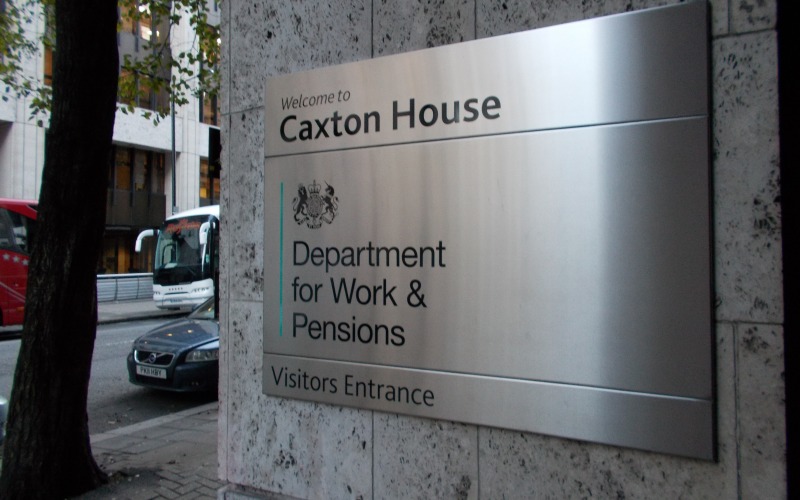The government has failed to provide annual figures that could have exposed the failure of its much-criticised disability strategy.
The last time the Office for Disability Issues (ODI) provided an update for its Fulfilling Potential strategy was in November 2015, in its second annual progress report.
That report provided a series of measurements for how well the government was doing in achieving disability equality across social participation, education, employment, income, choice and control, housing, transport and other areas.
Because most of the sources of its data used a definition of disability taken from the Equality Act, rather than its predecessor legislation, the Disability Discrimination Act, the 2015 report said that the figures could not be directly compared with previous years.
Instead, the report said, figures showing how disabled people’s experiences had changed during that year would be produced in 2016.
But no such figures have been published.
Separate research by the Office for National Statistics, included in an ODI report in August 2015, had shown the proportion of disabled people who said they frequently had choice and control over their lives had plunged from 76 per cent in 2008 to just 65 per cent in 2014, a fall of more than 14 per cent (or 11 percentage points) in just six years.
There will be concerns that the government has failed to publish updated figures because they would show further such falls and demonstrate that cuts to spending in areas such as social care, including the closure of the Independent Living Fund, and disability benefits, are having a damaging effect on disabled people’s right to independent living, and their access to education, housing, transport and other services.
The failure to publish the figures also casts fresh doubt on the government’s commitment to Fulfilling Potential, which was launched in 2012, and to the ODI itself.
Last February, ODI announced that it was withdrawing much of its support from a disability network it set up only three years earlier as part of Fulfilling Potential, a move that civil servants described as a cost-cutting measure.
ODI said that it would no longer provide the four part-time members of staff who ran the secretariat for the Disability Action Alliance, and would instead hand a one-year grant of £69,500 to the user-led charity Disability Rights UK (DRUK) to run the network.
Meanwhile, women and equalities minister (and education secretary) Nicky Morgan (who has since been sacked) said last July that the government would be reviewing the disability strategy over the summer and autumn.
She made that comment as part of her response to an inquiry by a House of Lords committee into the impact of the Equality Act on disabled people, which concluded that the government was failing to protect disabled people from discrimination.
A Department for Work and Pensions spokeswoman declined today to say if the government was planning to scrap Fulfilling Potential.
But she said in a statement: “We are committed to improving the lives of disabled people and increasing their participation in society.
“The Lords select committee and other reports have highlighted that disabled people expect different outcomes to the ones in 2013 for Fulfilling Potential, and we continue to explore ways of ensuring that disability rights are a reality for all disabled people.
“After taking account of feedback from disabled people’s organisations about the value of the Fulfilling Potential outcomes and indicators framework, we decided not to publish an update last year.
“We are exploring alternative options to provide more user-friendly and appropriate information for disabled people.
“We spend more on disabled people and people with health conditions (nearly £50 billion) than the OECD average, and countries such as Canada, France and the USA, according to the OECD itself.”
She denied that the failure to publish the updated figures made it look as if the government had something to hide.
She said that DWP “publishes a wide range of data about disabled people on GOV.UK each year including on welfare, expenditure, and the prevalence of disability.
“The framework also uses a range of other data sources which are available online.”
She said the government was “obviously committed to the Office for Disability Issues and they continue to work with the minister for disabled people on a range of issues across government”.
She added: “The move of the Disability Action Alliance from the Office for Disability Issues to other member organisations was part of a natural progression for the alliance.
“The Office for Disability Issues continues to play an active role within the alliance, sitting on the steering group and actively supporting its flagship project on disabled people in public life.”
Asked whether the decision to update the ODI website just four times in 2016, compared to 18 in 2015, signified a falling level of commitment to its work, the spokeswoman stressed again the government’s commitment to ODI, and added: “Updates to the website are not indicative of the breadth of work they do, nor do they reflect all of the collaborative projects they are working on at any given time.”

 Minister finally admits that working-age benefits spending is stable, despite months of ‘spiralling’ claims
Minister finally admits that working-age benefits spending is stable, despite months of ‘spiralling’ claims Timms says cuts must go ahead, despite being reminded of risk that disabled claimants could die
Timms says cuts must go ahead, despite being reminded of risk that disabled claimants could die Timms misleads MPs on DWP transparency and cover-ups, as he gives evidence on PIP review
Timms misleads MPs on DWP transparency and cover-ups, as he gives evidence on PIP review